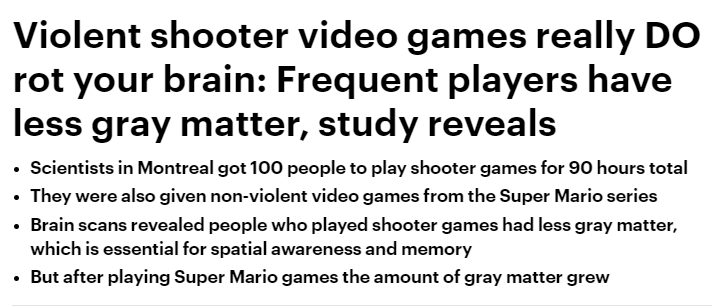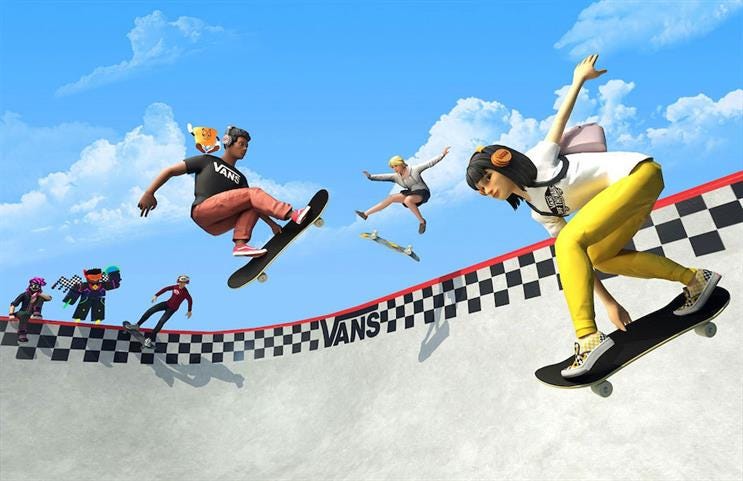Borkowski Weekly Media Trends 03-09-21
Revenge of the Gamers | Vans kickflip into the metaverse | What next for Olivia Rodrigo?
Revenge of the Gamers
Gaming’s cultural revolution that followed the pandemic was long on its way before its surge in popularity, however COVID-19 turbo-charged its relevance in society to new heights. As the population was forced to spend thousands of hours isolating at home, millions turned to videogames to escape.
As the media reported record-breaking sales, gaming navigated users through the pandemic, allowing us to socialise, engage our brains and cope.
Cast your mind back 10 years and sentiment for gaming was at an all-time low. Misinformation around videogames was widely circulated, with many parents restricting exposure to a hobby that would ‘rot your brain’.
And this week, China made news for banning online video games for under-18s during weekdays and limiting their play to three hours on weekends.
As we emerge from the pandemic, there’s a lot to be learnt about video games benefits on our mental health. You may be aware of career paths spawning out of gaming e.g. Esports, streaming, content creator / influencer but there’s a new industry on the block – gaming coach. With millions of new gamers entering this space, there’s a new demand for coaches to help rookies find their feet. Coaches are even introducing parents to competitive first-person shooters or ‘Battle Royale’ games so they can play with their familes.
Gaming has long outgrown its reputation as a niche, geeky pastime and is now akin to a sport like football (last month we even saw the first transfer fee for an esports FIFA player). It may be a scary prospect for some of our readers but gaming is set to be the biggest cultural industry at this level of growth.
Virtual skaters get their kicks as Vans enter the metaverse
Vans is the latest major brand to enter the Metaverse, confirming a trend that is projected to continue as more brands bank on lucrative virtual futures.
Similarly to last year’s Gucci gardens, Vans’s latest brand activation will feature a skate park world as well as branded merch purchasable through Roblox’s in-house currency, Robux.
Though it has been predicted for some time, it finally seems we are at the cusp of a revolution in in-game merchandising. That leaves the question: what will metaverse PR look like? Elsewhere, we have predicted that brands will distinguish themselves by their ability to create engaging, continuous, and makes-you-look-twice experiences on metaverse platforms that connects seamlessly into the other content. Though no doubt, big, one-time events such as Ariana Grande’s recent concert in Fortnite, will continue to have their place, brands will get the most bang for their buck by developing ongoing, evolving presences which build and sustain committed users over time.
Though we may be some way away from virtual merchandise replacing real-world goods, these kinds of activities feel prescient. Already, Gucci sold a handbag on Roblox for more than its real-world equivalent, suggesting we may not be far from the day when revenue from digital goods becomes a significant part of brands’ balance sheets. For the time being, however, these activities have an enormous marketing value, integrating brands ‘look-and-feel’ into the place where people, especially young people, are most immersed.
What next for Olivia Rodrigo after plagiarism row?
One of the fun things about being a music anorak is identifying and pointing out the specifics of what makes a song derivative; melody, lyrical themes, chord-patterns et al.
In terms of retribution for artists who have (however subconsciously) pinched their music, this revenge of the musical nerds tended to be as far as things went until recently.
Musical insiders explain that the rules on plagiarism used to be clear, with sampling and knowing intertextual references allowed with permission, and a certain number of notes allowed to follow the same melodic pattern, but anything outside of these parameters ripe for a lawsuit.
This changed when Marvin Gaye successfully sued Robin Thicke for, as the same insider puts it, ‘stealing a vibe’ rather than stealing music directly. The case created, to ‘sample’ an expression from its defendant, “blurred lines” for artists going forward.
Into this world came Olivia Rodrigo, teen pop icon whose smart, mature debut single Drivers License had fans, media and industry enraptured and who seemed destined to become an all-time great at an age when most of us consider getting up before 9am an achievement of note.
But then came Rodrigo’s next single Déjà Vu and people started experiencing the uncanny sensation that they’d encountered it before (is there a word for that?) many noting uncanny similarities to Taylor Swift’s Cruel Summer.
A blip in an unstoppable rise became a recurring theme as ensuing megahit Good 4 U was rapidly called out as an almost-direct rip-off of Paramore’s pop punk/emo classic Misery Business (including by a lot of 30-somethings furious that 2007 was deemed historic enough to pull off a backdoor-reboot).
Overnight Rodrigo went from future queen of pop to ‘the girl who steals songs’. Most artists either fight these accusations to the death or half-heartedly backtrack and claim coincidence or purposeful homage, but Rodrigo’s advisors have gone somewhere down the middle and are rumoured to have offered the aforementioned artists songwriting credits.
In what amounts to an admission of guilt, Rodrigo will not only be sacrificing royalties, she’ll be sacrificing credibility; ensuring that the music world will be dusting her next work for other artists’ fingerprints. Having chosen this path, let’s just hope her next single is an entirely original banger, or her bubble might burst for good.




